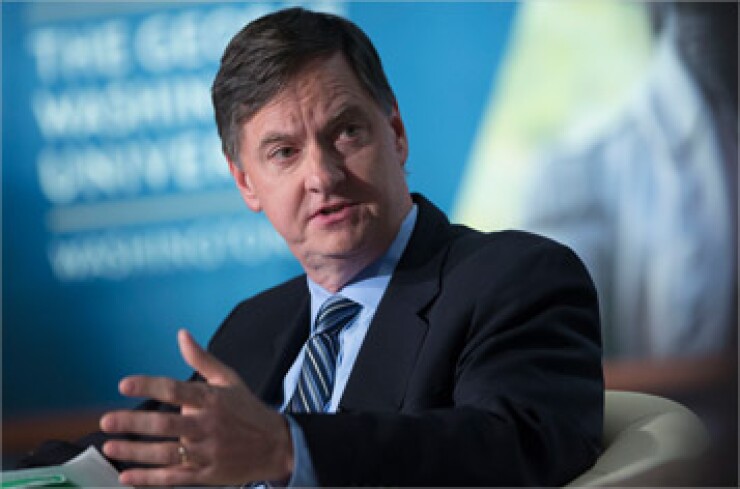
Steps taken by the Federal Reserve since the financial crisis began five years ago, including a "reoriented" supervisory position can decrease the chances of a future crisis, and rate hikes should not be used to address financial risks, Federal Reserve Bank of Chicago President and Chief Executive Officer Charles L. Evans said Friday.
"Since the financial crisis, the Federal Reserve has expanded its macroprudential toolkit and enhanced its microprudential tools. We have also reoriented our approach to supervision to take full advantage of Federal Reserve System staff's wide-ranging expertise on macroeconomic and financial developments and risks," Evans told the Financial Management Association, according to prepared text released by the Fed. "I believe that these regulatory efforts can effectively minimize the risks of another crisis and increase the resiliency of the financial system. We can achieve these objectives without having to resort to wholesale changes to the financial system and without degrading our monetary policy goals."
Critics, he said, questioned whether supervisory and regulatory tools can "adequately address potential financial stability risks." The argument is "a broad interest-rate policy might be more effective in catching incipient risks that might fall through the cracks," Evans said.
While conceding higher interest rates would decrease excessive risk-taking, Evans noted, it would also reduce "economic activity in sectors where risk-taking might already be overly restrained."
"If you believe that financial stability can only be achieved through higher interest rates - interest rates that would do immediate damage to meeting our dual mandate goals at a time when unemployment is still unacceptably high - then we ought to at least ask ourselves if the financial system has become too big and too complex. This conclusion is particularly vexing if supervisory, macroprudential and market-discipline tools are inadequate," he said.
Should excessively high interest rates be the only way to achieve financial stability, Evans said, "then the cost-benefit calculus of our policy choices becomes much more complex."
While these rates could cut risks "that might potentially be forming in the nooks and crannies of a highly complex financial system," the cost "would be higher unemployment"; the threat of "choking off the economic recovery"; lower inflation; "and, somewhat paradoxically, the introduction of new financial risks by reducing asset values and credit quality."
Looking at these "costs and benefits of alternative policy actions under these circumstances, I would have to question whether the financial system has become too complex - perhaps complex enough to generate negative marginal social value. Rather than degrading our macroeconomic performance through suboptimal monetary policies, I also would have to consider whether we should contemplate big changes to the financial system - a lot more rules, substantially higher capital requirements for all institutions and maybe even fewer financial products."
But, he concluded, that his view is the Fed's tools can minimize the risks.





